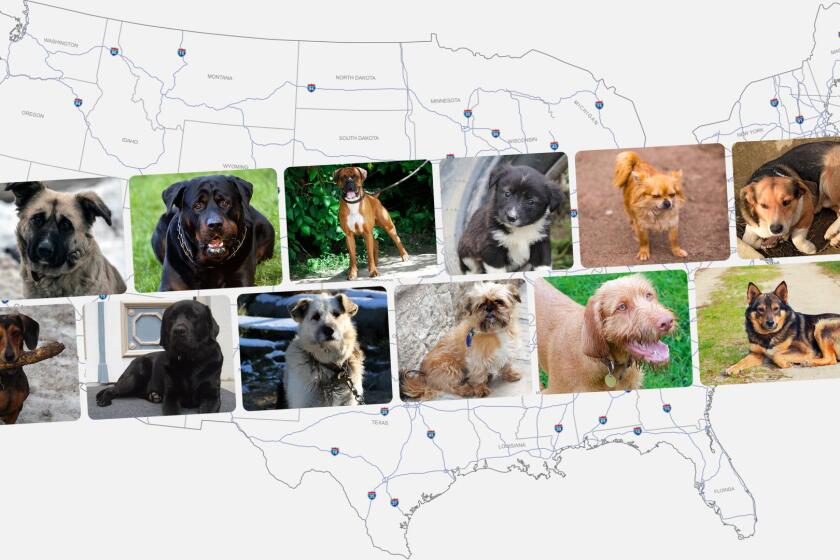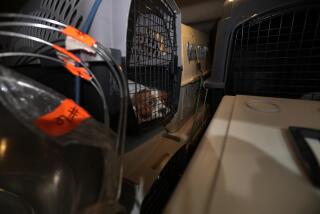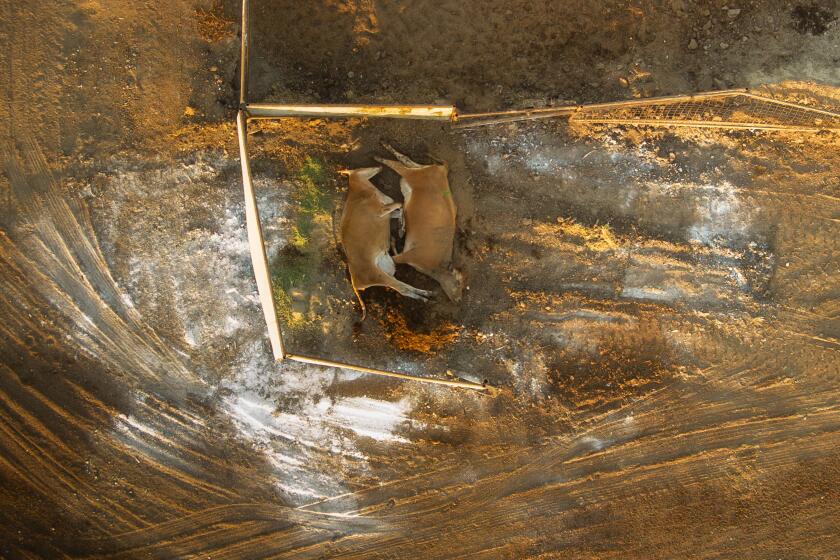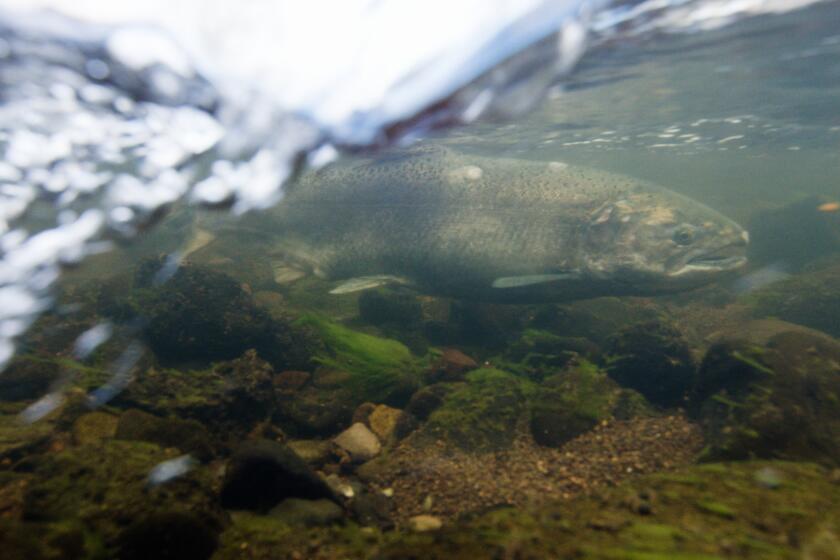California acts to preserve records detailing underground puppy market

California has stopped destroying records that contain key details about the state’s underground puppy market after a Times investigation found that some unscrupulous resellers import hundreds of dogs from the Midwest with little oversight.
Karen Ross, secretary of the California Department of Food and Agriculture, confirmed that the records the agency receives are now being preserved, but offered few other details about how the state will use them.
“We have no staff that’s dedicated to this, so we’re a little bit hamstrung right now, but it’s not because we don’t want to be a part of the solution,” she said in a brief interview this week.
In California, all dogs brought into the state for resale require a certificate issued by a federally accredited veterinarian listing the animal’s origin, destination and verification they are healthy to travel. The agriculture agency has long received those health certificates from other states by mistake — the records are supposed to go to county public health departments — and, in recent years, made it a practice to immediately scrap them.
By obtaining the health certificates from other states, The Times found consumers who unwittingly purchased expensive dogs from resellers posing as local breeders. Many dogs were sourced from out-of-state puppy mills, leaving some new owners with sick pets and costly veterinary bills.
A Times investigation has found that truckloads of dogs from profit-driven mass breeders pour into the state from the Midwest, feeding an underground market where they are resold by people claiming to be small, local home breeders.
Following the investigation, lawmakers and animal advocates called on the state agriculture department to stop “destroying evidence” that dogs are illegally being imported into the state, prompting the agency to reverse course.
“There’s a lot of interest in finding ultimate solutions, and we’re very interested in that ourselves,” Ross said.
A spokesperson for the agriculture agency previously acknowledged that the current system “is confusing” since the state oversees health certificates for livestock and poultry imports but counties are supposed to receive the same paperwork for dogs.
The agriculture department said it receives up to 50 health certificates each day for dogs and since they are sent in error, there are no dedicated staff to handle them. Ross said the previous decision to delete records shouldn’t be confused with the agency not caring — “we do care.”
The agency said it notifies other states that the records should go to counties, not to them. In response, some states simply stopped sending the records to California at all, The Times found.
California first began requiring the records in 2014 to protect consumers from buying sick puppies and reduce the likelihood that dogs brought into the state have contagious diseases. Lawmakers said at the time that the law would also give counties a complete picture of the number of dogs entering their jurisdiction from outside California — a blind spot for local animal control officers as pet sales were increasingly made online, according to files in the State Archives.
After The Times report, State Senate Judiciary Chair Sen. Tom Umberg (D-Orange) had called on the agriculture department to immediately cease destroying health certificates so that legislators and animal welfare officials can “absorb the information that has come to light.”
“I have since received assurances from Secretary Ross that these documents are no longer being deleted, which is a relief,” Umberg said in a statement.
A Times investigation of California’s underground puppy resale market “raises serious alarms about the inhumane treatment of pets,” Gov. Newsom’s office said.
Ross said the department has attempted to recover some of the destroyed records. Following a public records request, the agency last week provided 57 records for dogs imported into California, but the names and addresses of who ordered the animals were redacted. In one record, six cavapoos, all 8 weeks old, were approved by an Ohio veterinarian to be sent to California. The name and address, including city, of the purchaser was blacked out by California officials.
In many cases, California agriculture officials also redacted the name of the breeder.
Deborah Howard, founder of the Companion Animal Protection Society, has requested health certificates from various states to trace how dogs move from puppy mills to pet shops and other resellers. In the past, she said, California has provided unredacted copies of health certificates to her organization and should continue to do so.
“There’s too many dogs right now suffering in the state of California, and we have an obligation to keep track of all the dogs coming in,” said Howard, referring to the overpopulation crisis at shelters across the state. “It should be a matter of public record so that anybody can request that information.”
Under state law, dog importers are required to provide the records to county public health departments, but few actually do. Without those records, dogs are being imported illegally. Many county officials, meanwhile, were largely unaware they were supposed to collect the documents and, for the most part, haven’t.
Randy Friedman, a spokesperson for Ventura County Animal Services, said the county had not received any dog health certificates this year. By requesting the documents from other states, The Times obtained records for hundreds of dogs in recent years that should have been sent by California dog importers to Ventura County.
“Bad actors who source dogs from out-of-state puppy mills for resale to unsuspecting California buyers, are unlikely to submit dog importation health certificates in compliance with [the law] because they wish to evade scrutiny,” Friedman said.
California’s puppy pipeline: Where is your dog from?
Lisa Eldridge, public safety division manager for the L.A. County Department of Animal Care and Control, said the agency doesn’t track puppies getting trucked in from the Midwest, but said import records would be useful.
“Would it have value from an enforcement standpoint? Absolutely,” she said. “I think we need to figure out who the big players are. Who are the people who are importing litters and litters and litters of puppies.”
At the same time, she said, a flood of import records to follow up on could overwhelm the department, which is understaffed as it is.
She acknowledged that the system as it’s set up now is easy to exploit by importers and penalties for not filing health certificates to county public health departments are light and not enforced.
“How are they supposed to get caught? That’s the question,” she said. “Why follow the rules?”
More to Read
Sign up for Essential California
The most important California stories and recommendations in your inbox every morning.
You may occasionally receive promotional content from the Los Angeles Times.















